Various building materials can be used to construct basement flooring. In this post, we will discuss various types of basement floors.
Let’s get started.
Table of Contents
Introduction
The basement holds a crucial role in a home’s structural integrity, with flooring being a key component. Over time, basement floors endure considerable stress from moisture, dirt, and pressure, emphasising the need for high-quality materials.
Despite this significance, basement floors are often overlooked in interior decoration, providing homeowners with a diverse range of options for this
space.
When considering basement flooring, there are a plethora of choices, ranging from vinyl plank to wood flooring. The decision on the best flooring for a basement can be challenging.
In this discussion, we will explore some of the top types of flooring materials suitable for basements.
Critical Elements For Quality Basement Flooring
When evaluating the effectiveness of basement flooring, consider the following factors:
1. Moisture Control Solutions:
Address the inevitable presence of water in basements by employing dehumidifiers. Proactive measures such as de-moisturizing solutions contribute to maintaining the
health and longevity of basement flooring.
2. Inorganic Nature:
Opt for flooring materials that are inorganic to resist moisture damage.
Examples include tile, concrete, and vinyl, as they do not deteriorate when exposed to mold and damp
conditions.
3. Durable Materials:
Choose basement flooring made of durable materials to prevent issues like seepage and dampness. Hard materials such as tile and concrete are preferable over soft options like
carpet, which may be susceptible to defects.
4. Minimal Layers:
Simplify basement flooring by selecting single-layered options, especially in areas with limited ventilation. Concrete, for instance, not only qualifies as an inorganic material but also prevents water seepage due to its single-layer composition.
5. Raised Subfloor:
Some below-grade basements may benefit from a raised subfloor, whether in the
form of a specific subfloor system or a traditional plywood construction. A raised subfloor enhances the performance of materials like laminate.
Let’s know about best type of flooring for basement.
Types Of Flooring For Basement
1. Sheet Vinyl:
Sheet vinyl is a versatile flooring material made of fiberglass with a cushioned backing, available in large, continuous sheets or rolls. It comes in various styles and thicknesses, with thicker options being more durable. It can be directly applied over concrete using adhesive after proper preparation, making it an affordable and water-resistant choice. However, it may dent or tear easily, and its removal can be challenging once installed
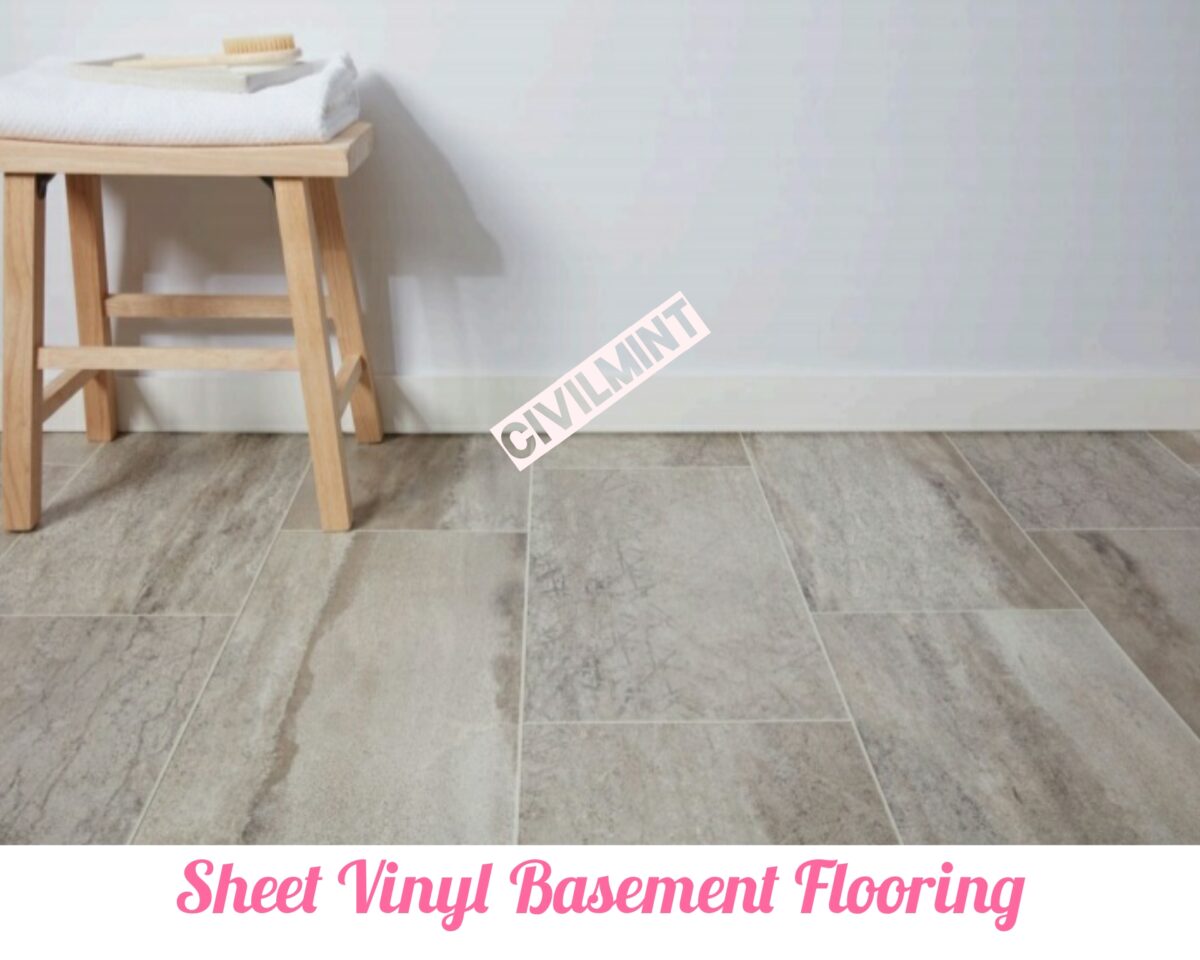
- Pros: Inexpensive, quick installation, waterproof.
- Cons: Can dent or tear easily, difficult to remove once installed, non-biodegradable.
2. Ceramic/ Porcelain Tile:
Ceramic tiles, composed of clay, sand, and water, offer an affordable and aesthetically diverse flooring option. They come in various colors and sizes but may be noticeable if broken. Porcelain tiles, similar
in composition to ceramic but denser, are water-resistant and maintain color throughout damage. They are available in diverse colors, shapes, and sizes, making them suitable for basement renovations.
However, the installation process can be laborious and expensive for larger areas.
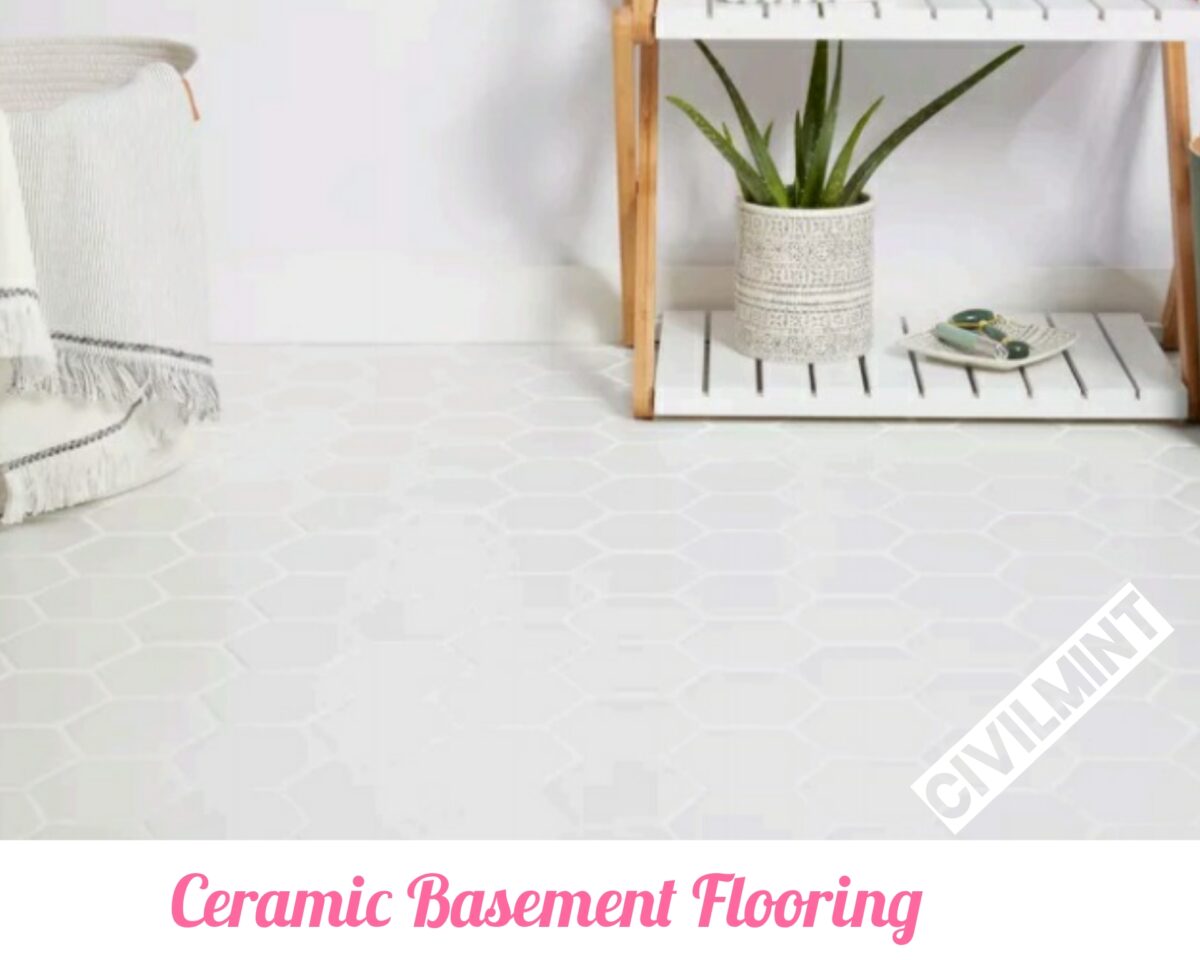
- Pros: Water-resistant, durability, lifespan.
- Cons: Cost of installation, can be difficult to clean, weight.
3. Luxury Vinyl Plank (LVP):
Luxury vinyl plank (LVP) flooring mimics the appearance of hardwood or stone through a printed image. Sold in strips or planks, it can be installed using adhesive or as a floating floor. LVP flooring offers a cost-effective, waterproof, and low-maintenance option. However, it may not contribute significantly to home resale value, and the installation process can be challenging.
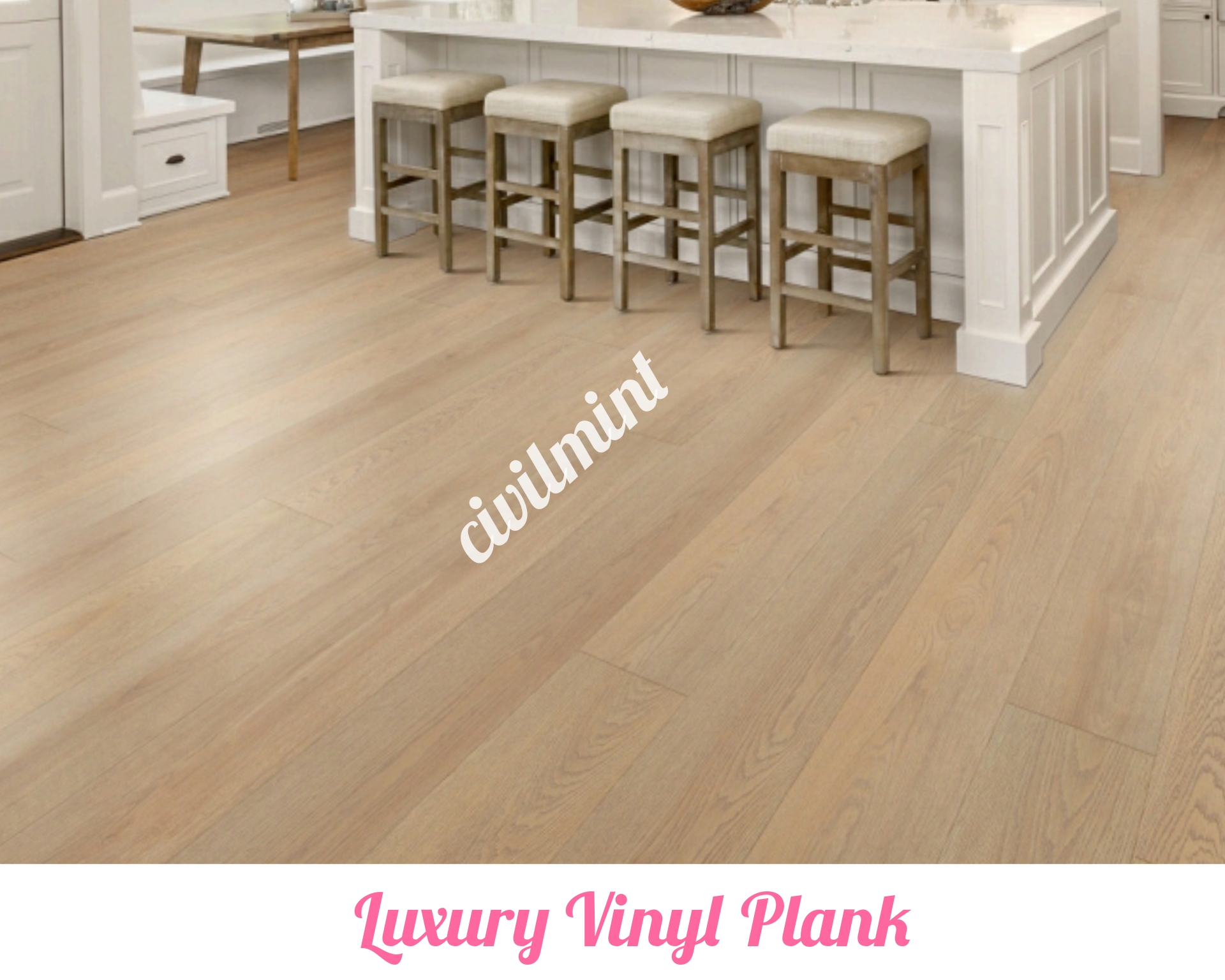
- Pros: Cost, waterproof, low maintenance.
- Cons: May not significantly enhance the property’s resale value, lacks biodegradability, and may pose challenges during the installation process.
4. Engineered Wood
Engineered wood flooring consists of a thin layer of real wood on the surface and a plywood core. It is a cost-effective alternative to solid hardwood, providing an attractive appearance and good resale
value. However, it is susceptible to scratching and denting, and its installation cost should be considered.
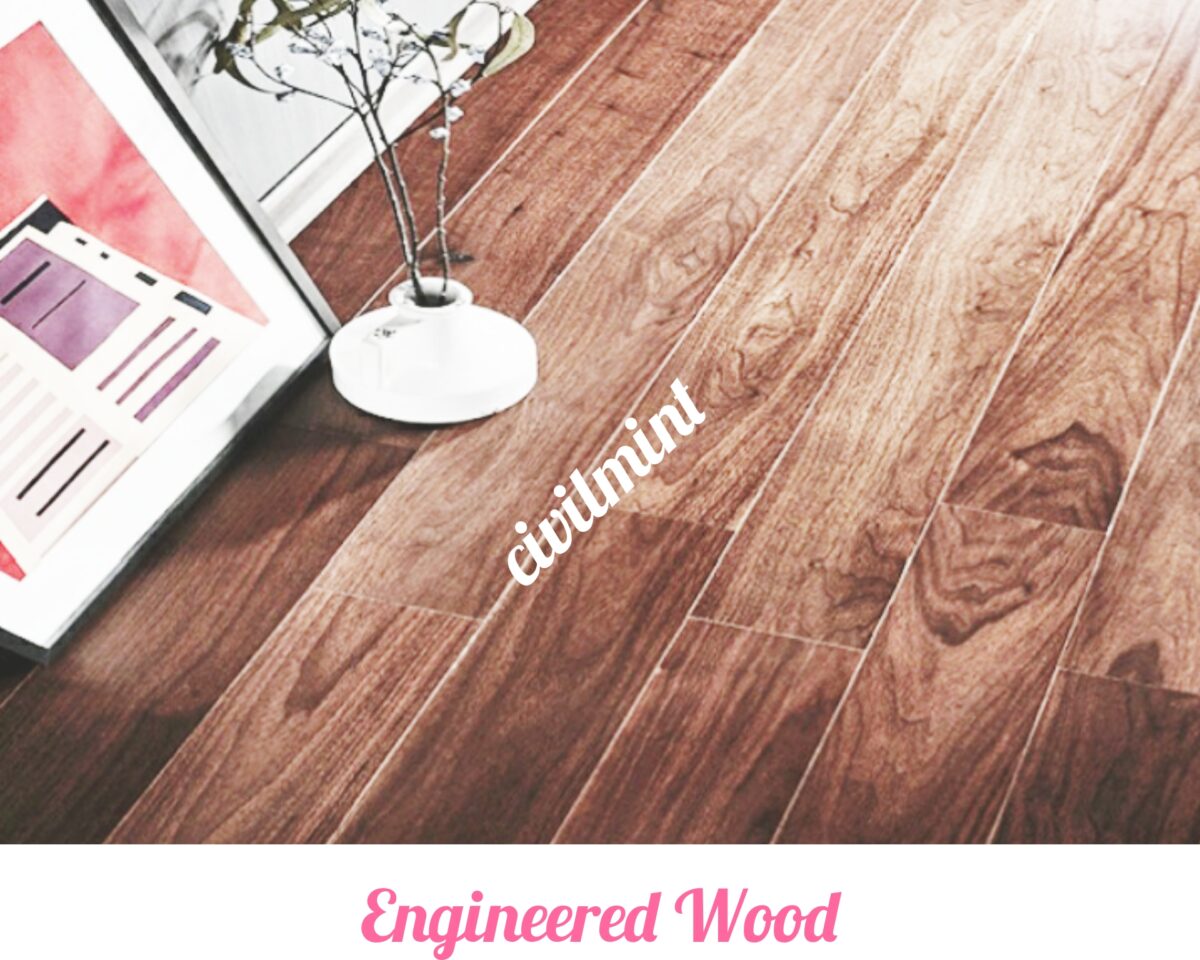
- Pros: Lower cost than solid hardwood, good for home resale value, attractive appearance.
- Cons: Prone to scratching and denting, installation costs, and vulnerability to moisture damage
5. Concrete
Concrete, composed of cement, fine aggregates, and coarse aggregates, can be used as a flooring option for basements. Proper preparation involves patching and filling visible cracks and applying a sealer. However, it tends to be cold, may crack, and provides a hard surface underfoot.
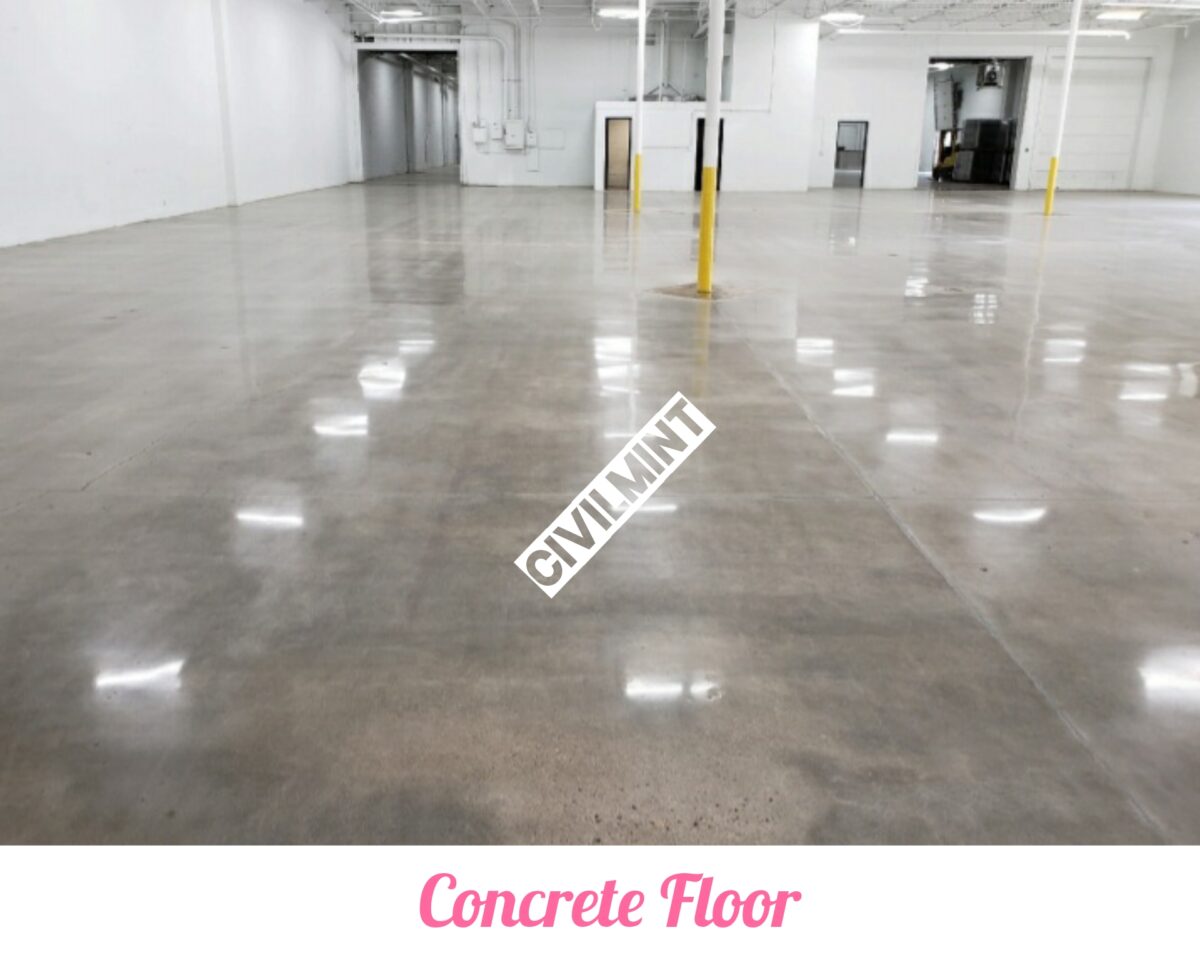
- Pros: Cost-effective, eco-friendly, you can add radiant heating if pouring a new slab.
- Cons: Cold, cracking, hard surface underfoot.
6. Laminate
Laminate flooring is a composite material with multiple layers, serving as a cost-effective alternative to hardwood. It is durable against heavy foot traffic but may not withstand moisture well, leading to warping. Laminate is known for its easy installation and maintenance, but it may chip during installation and may not enhance home resale value significantly.
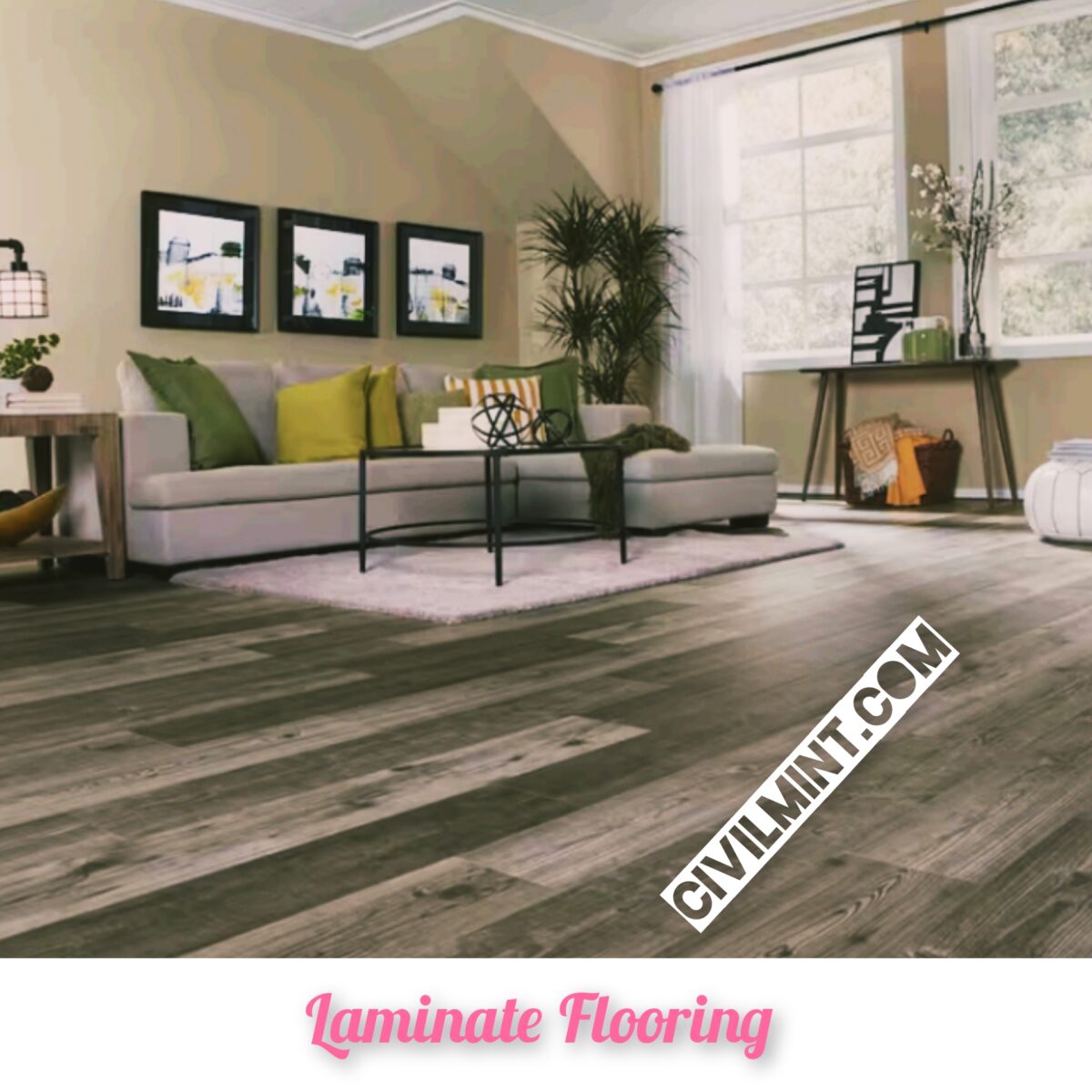
- Pros: Inexpensive, easy installation, easy to clean.
- Cons: Prone to damage from moisture, may experience chipping during installation, and
- may not enhance home resale value significantly.
Conclusion
When deciding on the most suitable flooring for a basement, careful consideration of factors such as moisture control, durability, and aesthetic preferences is crucial. Each option, from Sheet Vinyl and Ceramic/ Porcelain Tile to Luxury Vinyl Plank (LVP), Engineered Wood, Concrete, and Laminate, offers a unique set of advantages and drawbacks.
Homeowners must weigh these factors based on their specific needs and circumstances to create a functional and appealing basement space.
